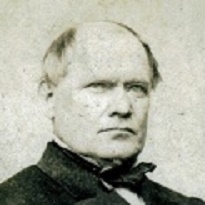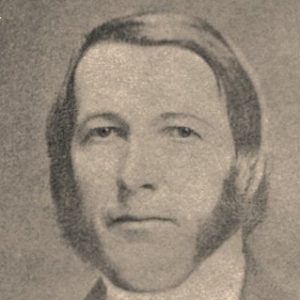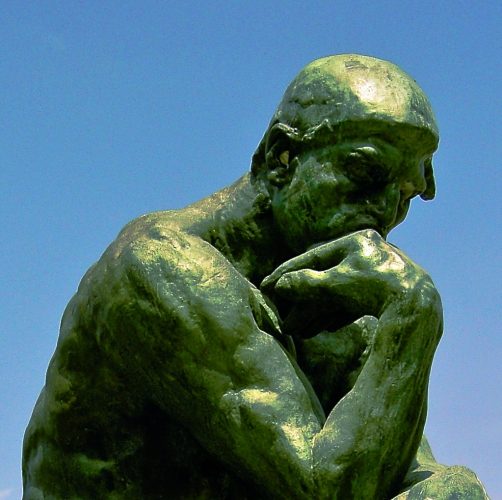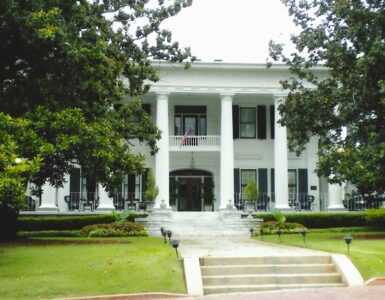 As the new year 2019 approaches this post includes three brief pieces located in Sterling’s Southern Orator Containing Standard Lectures in Prose and Poetry for Declamation and Recitation in Schools and Colleges, 1867. The authors of the selections are Stuart Robinson, J. H. Thornwell, and the last piece is by the most prolific author of all time, A. Nonymous, who provides thoughts on republican government. Current events in areas of the western world are disconcerting. The United States is divided politically and there is tension with other nations; the United Kingdom is struggling to accomplish Brexit with Parliament divided having at least three views; not too long ago Catalonia’s attempt to secede from Spain failed; the French are suffering through political troubles because of taxation; and Italy, the home of the Roman Republic, is adjusting its budget to comply with the requirements of its confederation, the European Union. Scripture reminds us that government is to be honored, obeyed, and have prayers made for its work. The Bible clearly teaches that governments are ministers who wield the sword against evil doers and provide peace for the worship and work of the church. Christians should take comfort in remembering that “all the nations of the earth are as a drop in the bucket” (Isaiah 40:15), and that God rules and overrules his political ministers just as he did multiple times with Pharaoh’s rule of the Hebrews, and when he subdued King Nebuchadnezzar in the book of Daniel. The last piece below mentions that a “noble inheritance, bought by the toils, and sufferings, and blood of … ancestors” must be recognized and built upon to sustain a republic. Do the current political events in Europe and America show the fruit of man’s continued suppression of the knowledge of God in unrighteousness? Has the “virtue, public spirit, and intelligence of the citizens” of nations been affected by denial of God’s existence, rejection of his Word, and discriminate marginalization of those who hold to the gospel of God’s grace to sinners? Surely, the answer to both questions is yes.
As the new year 2019 approaches this post includes three brief pieces located in Sterling’s Southern Orator Containing Standard Lectures in Prose and Poetry for Declamation and Recitation in Schools and Colleges, 1867. The authors of the selections are Stuart Robinson, J. H. Thornwell, and the last piece is by the most prolific author of all time, A. Nonymous, who provides thoughts on republican government. Current events in areas of the western world are disconcerting. The United States is divided politically and there is tension with other nations; the United Kingdom is struggling to accomplish Brexit with Parliament divided having at least three views; not too long ago Catalonia’s attempt to secede from Spain failed; the French are suffering through political troubles because of taxation; and Italy, the home of the Roman Republic, is adjusting its budget to comply with the requirements of its confederation, the European Union. Scripture reminds us that government is to be honored, obeyed, and have prayers made for its work. The Bible clearly teaches that governments are ministers who wield the sword against evil doers and provide peace for the worship and work of the church. Christians should take comfort in remembering that “all the nations of the earth are as a drop in the bucket” (Isaiah 40:15), and that God rules and overrules his political ministers just as he did multiple times with Pharaoh’s rule of the Hebrews, and when he subdued King Nebuchadnezzar in the book of Daniel. The last piece below mentions that a “noble inheritance, bought by the toils, and sufferings, and blood of … ancestors” must be recognized and built upon to sustain a republic. Do the current political events in Europe and America show the fruit of man’s continued suppression of the knowledge of God in unrighteousness? Has the “virtue, public spirit, and intelligence of the citizens” of nations been affected by denial of God’s existence, rejection of his Word, and discriminate marginalization of those who hold to the gospel of God’s grace to sinners? Surely, the answer to both questions is yes.
BARRY WAUGH
CHRISTIANITY AND INFIDELITY IN CONTRAST
 The mysteries of Christianity all lie in a region where finite reason cannot, in the nature of the case, be expected to reach them. The mysteries of infidelity, equally inexplicable, originate merely in its own self-contradictions. The religion which Christianity offers to the world is a religion of fact, which the learned and the ignorant can alike comprehend. The religion which infidelity presents, when it presents any religion at all, is a religion of subtle and refined speculations beyond the comprehension of all but a few and acute thinkers. The sanctions of Christianity appeal directly to man’s conscience, and to his instinctively felt relation to God as his Ruler and Judge. The sanctions alike of all the systems of skepticism, to the lowest views of his self-interest. The evidences of Christianity, aside from the intrinsic fitness of its doctrines to his spiritual nature, rest upon facts, the force of which any man can comprehend. The evidence of any system of faith provided by skepticism must rest upon subtle and refined deductions, of the correctness of which even the most learned can never feel absolutely certain. The authoritative standard of Christian faith presents a unity, absolutely miraculous, between men of every variety of natural gifts, extending over a period of fifteen hundred years. The diversities of skepticism are almost equally wonderful, but only as exhibiting the endless vagaries of the human mind. Christian philosophy, with its fundamental fact admitted concerning a revelation, can explain by almost any theory the phenomena of humanity and of the universe. Infidelity, repudiating that fact, runs into every conceivable absurdity in the attempt to construct a theory of the universe. Christianity contains mysteries. Infidelity exhibits endless contradictions. Christianity teaches doctrines which excite the hostility of the human heart. Infidelity promulges dogmas which do violence to the human understanding. Christianity is accused of setting at naught the laws of reason and of evidence; and of opening a door to all manner of imposture upon the credulity of the world. Infidelity subverts all the laws of evidence, and, if consistent with itself, makes all history one vast blank. In its sublimest results it leaves man’s soul doubtful of its own existence, without moral principle to guide and enlighten it—man’s intellect to become “a mind void of judgment,”—and the whole race of man to an eternal orphanage, wandering forever the sport of a fitful chance, or, what is no better, left to the guidance of certain blind “natural laws,” or to the iron rule of a cold and heartless destiny.
The mysteries of Christianity all lie in a region where finite reason cannot, in the nature of the case, be expected to reach them. The mysteries of infidelity, equally inexplicable, originate merely in its own self-contradictions. The religion which Christianity offers to the world is a religion of fact, which the learned and the ignorant can alike comprehend. The religion which infidelity presents, when it presents any religion at all, is a religion of subtle and refined speculations beyond the comprehension of all but a few and acute thinkers. The sanctions of Christianity appeal directly to man’s conscience, and to his instinctively felt relation to God as his Ruler and Judge. The sanctions alike of all the systems of skepticism, to the lowest views of his self-interest. The evidences of Christianity, aside from the intrinsic fitness of its doctrines to his spiritual nature, rest upon facts, the force of which any man can comprehend. The evidence of any system of faith provided by skepticism must rest upon subtle and refined deductions, of the correctness of which even the most learned can never feel absolutely certain. The authoritative standard of Christian faith presents a unity, absolutely miraculous, between men of every variety of natural gifts, extending over a period of fifteen hundred years. The diversities of skepticism are almost equally wonderful, but only as exhibiting the endless vagaries of the human mind. Christian philosophy, with its fundamental fact admitted concerning a revelation, can explain by almost any theory the phenomena of humanity and of the universe. Infidelity, repudiating that fact, runs into every conceivable absurdity in the attempt to construct a theory of the universe. Christianity contains mysteries. Infidelity exhibits endless contradictions. Christianity teaches doctrines which excite the hostility of the human heart. Infidelity promulges dogmas which do violence to the human understanding. Christianity is accused of setting at naught the laws of reason and of evidence; and of opening a door to all manner of imposture upon the credulity of the world. Infidelity subverts all the laws of evidence, and, if consistent with itself, makes all history one vast blank. In its sublimest results it leaves man’s soul doubtful of its own existence, without moral principle to guide and enlighten it—man’s intellect to become “a mind void of judgment,”—and the whole race of man to an eternal orphanage, wandering forever the sport of a fitful chance, or, what is no better, left to the guidance of certain blind “natural laws,” or to the iron rule of a cold and heartless destiny.
THE LOVE OF TRUTH
 This love of truth which I have been endeavoring to recommend will be of the very last importance to you, to guard you against the deceits of the world. Man walketh in a vain show. Untutored by experience, the young particularly are slow to suspect that the prospects of good, of pleasure, opulence, and power, which stretch in rich luxuriance before them, are an empty pageant. Unskilled in the treachery of the heart and the wiles of the tempter, they can hardly be persuaded that the gilded colors in which imagination adorns the future are only a splendid drapery under which are concealed disappointment, sorrow, and vexation. They have yet to learn the emptiness of pleasure, the agonies of power, and the vanity of wealth. Impetuous in their passions, ardent in their temper, and ignorant of life, they are prone to fix their affections upon some of those beggarly elements which will crumble into ashes at the touch of experience. The prince of darkness, intent upon their ruin, plies his fatal arts of enchantment to lull them into a sleep of false security, to exclude religion from their thoughts, and to conduct them by deceitful promises of good, by lies congenial with his nature, to the shades of death. This, my young friends, is your position, and it is one of immense peril. The world, the flesh, and hell, all conspire, by glossing falsehood, to seduce you to perdition. A covering is spread upon the grave and the pit, and the ways of sin are adorned with all that can please the eye, fascinate the ear, or enchant the heart. Your security against these dangers is conviction of the truth. The word of God, which is preeminently the truth, and in which a truth-loving heart will lead you to rest, dissipates the spell, reveals the snare, and delivers from the plot. It paints life in its true colors, tears the mask from the face of guilt, disrobes the world of its gorgeous drapery, and points to Him who is emphatically the way, the truth, and the life. All the rays of moral truth ultimately center in the cross of the Redeemer; and we never reach the summit of wisdom until we attain that life which is alike the knowledge of the Father and of His Son Jesus Christ. Everyone, says the Savior, that is of the truth, heareth my voice. None perish but those who love darkness rather than light, a deceived heart turns them aside.
This love of truth which I have been endeavoring to recommend will be of the very last importance to you, to guard you against the deceits of the world. Man walketh in a vain show. Untutored by experience, the young particularly are slow to suspect that the prospects of good, of pleasure, opulence, and power, which stretch in rich luxuriance before them, are an empty pageant. Unskilled in the treachery of the heart and the wiles of the tempter, they can hardly be persuaded that the gilded colors in which imagination adorns the future are only a splendid drapery under which are concealed disappointment, sorrow, and vexation. They have yet to learn the emptiness of pleasure, the agonies of power, and the vanity of wealth. Impetuous in their passions, ardent in their temper, and ignorant of life, they are prone to fix their affections upon some of those beggarly elements which will crumble into ashes at the touch of experience. The prince of darkness, intent upon their ruin, plies his fatal arts of enchantment to lull them into a sleep of false security, to exclude religion from their thoughts, and to conduct them by deceitful promises of good, by lies congenial with his nature, to the shades of death. This, my young friends, is your position, and it is one of immense peril. The world, the flesh, and hell, all conspire, by glossing falsehood, to seduce you to perdition. A covering is spread upon the grave and the pit, and the ways of sin are adorned with all that can please the eye, fascinate the ear, or enchant the heart. Your security against these dangers is conviction of the truth. The word of God, which is preeminently the truth, and in which a truth-loving heart will lead you to rest, dissipates the spell, reveals the snare, and delivers from the plot. It paints life in its true colors, tears the mask from the face of guilt, disrobes the world of its gorgeous drapery, and points to Him who is emphatically the way, the truth, and the life. All the rays of moral truth ultimately center in the cross of the Redeemer; and we never reach the summit of wisdom until we attain that life which is alike the knowledge of the Father and of His Son Jesus Christ. Everyone, says the Savior, that is of the truth, heareth my voice. None perish but those who love darkness rather than light, a deceived heart turns them aside.
THE WARNINGS OF HISTORY
Anonymous
 The past is secure. It is unalterable. The seal of eternity is upon it. The wisdom which it has displayed cannot be obscured; neither can it be debased by human folly or human infirmity. The future is that which may well awaken the most earnest solicitude, both for the virtue and the permanence of our republic. The fate of other republics, their rise, their progress, their decline, and their fall, are written but too legibly on the pages of history, if indeed they were not continually before us in the startling fragments of their ruins.
The past is secure. It is unalterable. The seal of eternity is upon it. The wisdom which it has displayed cannot be obscured; neither can it be debased by human folly or human infirmity. The future is that which may well awaken the most earnest solicitude, both for the virtue and the permanence of our republic. The fate of other republics, their rise, their progress, their decline, and their fall, are written but too legibly on the pages of history, if indeed they were not continually before us in the startling fragments of their ruins.
They have perished having perished by their own hands. Prosperity enervated them, corruption debased them, and a venal populace consummated their destruction. They have sometimes been cheated out of their liberties by servile demagogues; sometimes betrayed into a surrender of them by false patriots. They have disregarded the warning voice of their best statesmen, and have persecuted and driven from office their best friends. They have reverenced power more in its high abuses and summary movements than in its calm and constitutional energy. They have surrendered to faction what belonged to the country. Patronage and party, the triumph of a leader, and the discontents of a day have outweighed all solid principles and institutions of government. Such are the melancholy lessons of the past history of the republics down to our own. Let the history of the Grecian and Italian states warn us of our danger. Let the American youth never forget that they possess a noble inheritance, bought by the toils, and sufferings, and blood of their ancestors, and capable, if wisely improved and faithfully guarded, of transmitting to their latest posterity all the substantial blessings of life, the peaceful enjoyment of liberty, property, religion, and independence. The structure has been erected by architects of consummate skill and fidelity; its arrangements are full of wisdom and order; its foundations solid, and its defenses are impregnable from without. It has been reared for immortality, if the work of man may justly aspire to such a title. It may, nevertheless, perish in an hour by the folly, or corruption, or negligence of its only keepers.
Republics are created by the virtue, public spirit, and intelligence of the citizens. They fall when the wise are banished from the public councils because they dare to be honest, and the profligate are rewarded because they flatter the people in order to betray them.





